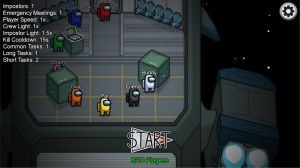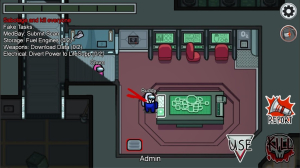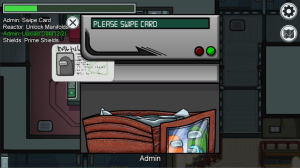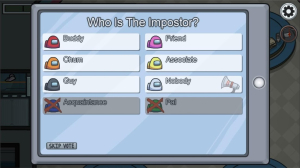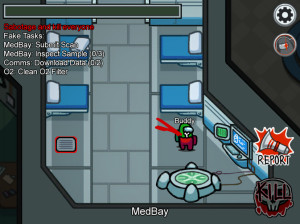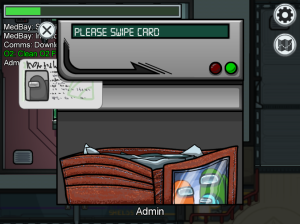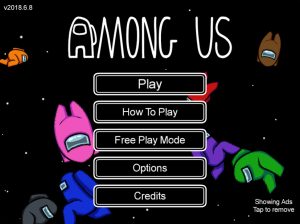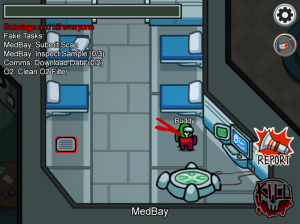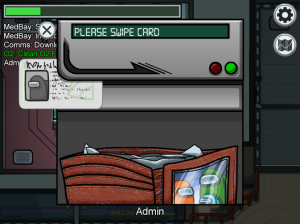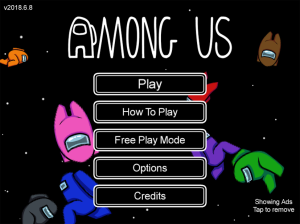Among Us
In recent years, few games have had the cultural impact of "Among Us," a deceptively simple game that skyrocketed in popularity during the unexpected downtime of a global pandemic. Developed by InnerSloth, it transformed friends and families into crews of astronauts and sneaky impostors. Through its clever blend of teamwork and social deduction, "Among Us" evolved into a digital party, a viral sensation, and a hotbed for hilarious moments and shocking betrayals.
Behind the Scenes: The Inner Machinations of a Spaceship
"Among Us" intricately meshes subtle strategy with pulsating tension. The game thrusts gamers aboard a spaceship or space station, assigning them one of two roles: most become Crewmates aiming to fulfill various tasks, while a handful become Impostors, entrusted with the insidious objective of sabotaging the mission and discreetly dispatching Crewmates.
The beauty of "Among Us" lies in the gameplay's minimalism—the tasks are simple enough to keep the focus on interaction between players yet engaging enough to ensure the game never stagnates. Communication is essential, as players convene in emergency meetings to discuss suspicious behavior and vote out potential Impostors. In this high-stakes environment, trust becomes a currency, and deception is the game's silent heartbeat.
Sonically, "Among Us" uses its soundtrack sparingly, imbuing the game with an eerie silence that increases tension and makes every footstep and task noise stand out. As there's no built-in voice acting, players either communicate via text chat or through external voice chat applications, which adds to the unpredictable energy of the sessions.
Visually, the game has a cartoonish art style, disarmingly cute yet perfect for its light-hearted, deceptive premise. This contrasting aesthetic allows players to engage with the gameplay, providing an inviting visual entry point to the darkly comedic subterfuge that "Among Us" offers.
The Achilles Heel of a Stellar Success
Every game has its Achilles heel, and "Among Us" is not exempt. One significant criticism centers around repetitive gameplay, which, for some, loses its luster after several sessions. In addition, the game is critically influenced by the social dynamics of the group of players; if the players are not properly matched, the experience can be sparse.
The Spacewalk’s End: Player Impressions
Concluding our journey into "Among Us," the player base has much to say about their experiences in the galaxy of deception. It encourages strategic thinking, social perception, and communication skills in ways few other games manage to capture.
However, for every player who rejoices in the social tricks and traps, another laments over a session soured by poor sportsmanship or uncooperative teammates. The reliance on player engagement and honesty can sometimes lead to frustration when the ideal conditions for the game aren't met.
Ultimately, "Among Us" has etched its name into gaming history—not for groundbreaking graphics or complex gameplay but for bringing people together in an age of isolation. Whether accusing a friend of suspicious behavior or laughing over a botched sabotage, the game has given players a universe of memories.
- Simple and compelling gameplay that focuses on social interaction
- Accessible cartoonish art style that broadens appeal
- Easy to learn, hard to master, creating a broad scope of player engagement
- The minimalist soundtrack adds to the suspenseful atmosphere
- Heavily reliant on group dynamics, which can vary greatly
- Some tasks can seem monotonous with repeated play
- The absence of built-in voice chat may limit the immediacy of player communication
